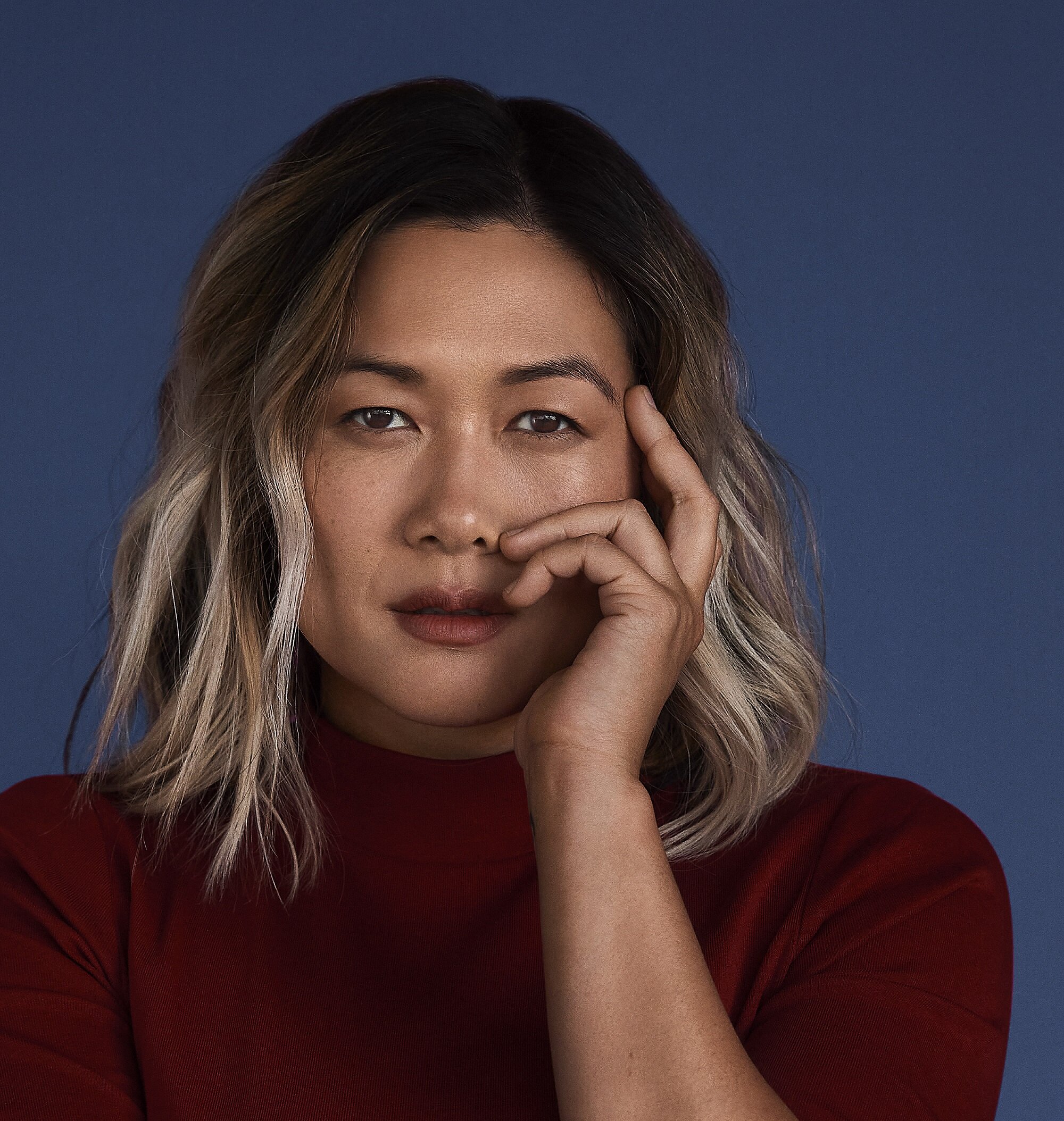by emily harris
photo by eric williams
Artist, and more importantly, activist MILCK is using her creative outlet to shed light on our current political climate. Her latest release, “Somebody’s Beloved,” was written in the midst of and in reverence with the Black Lives Matter Movement. Processing the world around her with songwriting, MILCK has created one powerful anthem after another. Using her platform to lift others up, MILCK is redefining what a platform can do for supporters, not just the artist.
Congrats on your newest single, “Somebody’s Beloved!” Can you talk about the inspiration behind this song?
MILCK: “Songs are a safe haven for many of us to process life. As Breonna Taylor, Ahmaud Arbery, Tony McDade, and George Floyd’s murders sparked a global uprising, I sat with the fact that I am both a beneficiary of proximity to white privilege, while also a victim of systemic racism.
As I started deepening my knowledge, I came across an interview with Tamika Palmer, Breonna Taylor’s mother. Her words prompted me to write the first verse of the song, which I then brought to Bipolar Sunshine.
As I type this, Tamika Palmer has gone over 200 days feeling her daughter’s absence, while demanding justice daily. I think about the countless families that have carried on, with their beloved’s names in their hearts.
My hope is that ‘Somebody’s Beloved’ will contribute to the conversation around systemic racism by honoring our beloved. We will also be launching The Somebody’s Beloved Fund to support seven local organizations working towards racial justice.”
What was the thought process behind collaborating with Bipolar Sunshine and a choir on this track?
M: “Bipolar Sunshine co-wrote ‘If I Ruled the World,’ my pre-pandemic single [laughs], which was released in February of 2020. He had written the hook of that song, and I ended up finishing those verses with Ido Z and Simon Wilcox. I remember Bipolar Sunshine being very thoughtful on who he would allow to use the hook. I liked that he was discerning, and particular about how his words were transmitted into the world.
When I wrote the verses to ‘Somebody’s Beloved,’ I knew I wanted to go to him, as I knew the song was bigger than me, and I wanted to round out the perspective. I didn’t want to put pressure on him, as this was a very charged time in politics and culture, so I lowkey slid into his Instagram DM’s and sent him some voice memos. I told him that if he truly connected with the song and had interest, I’d love to finish it with him, and learn from him, as a Black man, what else we could say in this song from his unique perspective. I also told him that there was no pressure in replying. I was so nervous to ask, because I know it’s an intense subject matter, and not all of us have bandwidth to tackle these topics. However, Adio showed up, and the Zoom writing session was so fun. We wrote the chorus very easily, and it was a powerful experience for me.”
Can you talk about the recording of the music video for “Somebody’s Beloved” as well?
M: “To better tell the visual story behind the loss of loved ones from systemic racism, I teamed up with One Family Memphis Foundation, an organization geared towards uplifting the predominantly Black community of South Memphis through nature, recreation, filmmaking, and after school programs.
I had met some of the beautiful people of the One Family Memphis Foundation while performing at the Mountain Film Festival in Telluride. One particular member, Jarmond, encouraged me to check out Memphis when I had the chance. His stories and perspective were so powerful that the idea of going to Memphis stayed with me. I ended up going to visit in 2019, and became friends with some of the staff.
I decided to send over my song to some of the One Family Memphis team, and we started ideating. Elisha Jewell, Chris Dean, Malik Martin, and Josh Cannon started sharing their perspectives and ideas. Some of them have unfortunately lost their own beloved to issues fueled by systemic racism. I decided that my job would be to find the funding to create the story they would feel proud of.
These four storytellers worked hard under the mentorship of Tom Shadyac, and created a narrative music video that supports their perspectives of what it feels like to have personally lost a beloved to issues fueled by systemic racism. We were able to get some of the community members, Vermico Smith and her daughter Minah, to be the lead actresses in the piece. Vermico herself lost her son a year and a half ago, and it felt very aligned for her to play the mother in this video. It was truly an honor to witness her tell the story with such power. I couldn’t be more proud of what we’ve created.”
This single follows your global anthem “Quiet.” How did it feel to have this record go viral after the inaugural Women’s March?
M: “It was surreal, as the word ‘viral’ really felt like a word that was left for the cool, hip, sleek, internet savvy human beings. To see that something so organic and emotionally charged could go viral reminded me that the truth always prevails.”
It was also named Billboard’s #1 protest song of the year! Can you talk about how you found out?
M: “I think someone on my management team sent me the article, and I was thrilled! To not only be listed on a publication I have revered for years, but also for that specific category. I got to break so many stereotypes for women, and for Asian women. We are so often seen as demure and compliant. I love that in one song I was able to break free from those preconceived notions.”
As both singles were written during the rising of the sociopolitical climate, how has music allowed you to combat the injustices in the world?
M: “Songwriting has always been my way of processing things that I have a difficult time talking about in person. Ever since I was young, I would use the process of meticulously sculpting words to convey my feelings as a form of therapy. I leaned on my songs to help me process the world around me.
Music allows me to cathartically release tensions and confusions, and they naturally alchemize into something more beautiful than the chaos that pushed me to run towards the piano.
Racial justice has been at the forefront of many of our minds, and as an Asian American woman, I have been both a perpetrator and victim of racism. I have benefitted from my proximity to white privilege, and I also know very well what it feels like to be othered because of my race. As I do more reading of Adrienne Maree Brown, Audre Lorde, James Baldwin, and Ijeoma Oluo, my emotions center around the fact that violence against Black lives impacts my life directly. These are my Black brothers and sisters, and I am in such awe of the strength and beauty that lives within the Black culture, even amidst such an unjust history in the US. All my emotions started swelling as I learned more and more. So the best way for me to keep moving forward is to process my respect for the lives lost through writing this song, ‘Somebody’s Beloved.’”
How has being an Asian American woman defined the way you approach the music scene, especially since you write such socially aware songs?
M: “Of course, I must preface by saying that this is not the experience of all Asian Americans, but I can say that I’ve seen this as a common thread between many other Asian American artists in my unique community.
That being said, I have had to become very persistent and patient with myself because Eastern and Western philosophies have a lot of differences, and especially in the music industry, those philosophies can be at odds with each other. For example, I was taught ever since I was young that my elders know best, and that reverence and following tradition is honorable and respectful. However, music feeds off of fresh and distinct voices that refuse to follow the herd. I have had to retrain myself to shed some of the traditional values that I was raised on, in order to allow for the raging voice within me find itself.”
Can we expect more poignant-topic songs soon?
M: “Oh, you know it. I am currently exploring topics surrounding family, and the generational and cultural gaps that haunt me. I’m tackling the fear that if I walk closer to myself, it could mean that I walk further from my family. However, as I keep writing about it, and leaning into brutal honesty about myself, and my loved ones, I am realizing there is the possibility of surrendering, and being okay with disapproval or disappointment. The only person I need to make sure I don’t betray is myself. If I can stay brutally loyal to my truth, I must trust that the forces of love and healing will come.”

